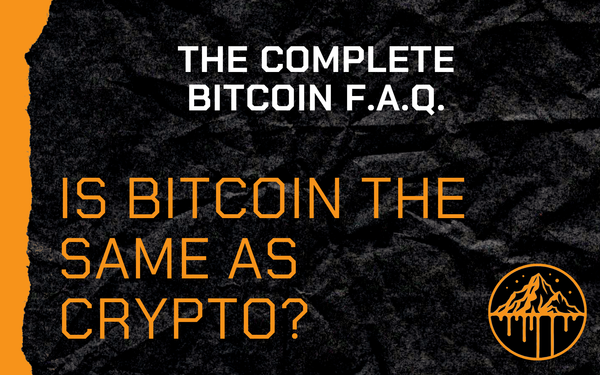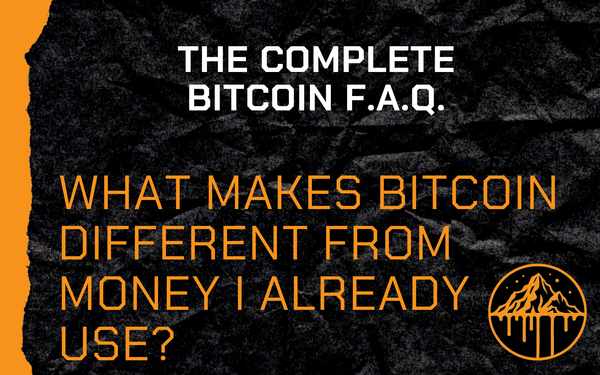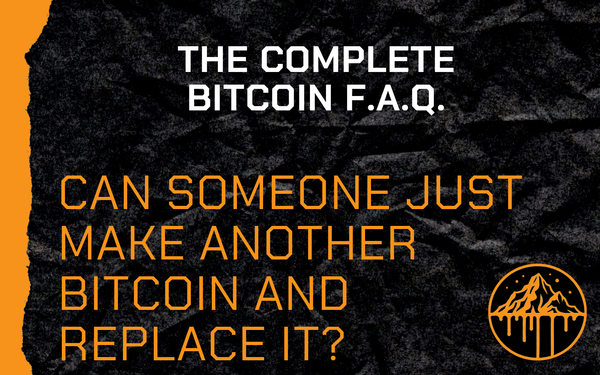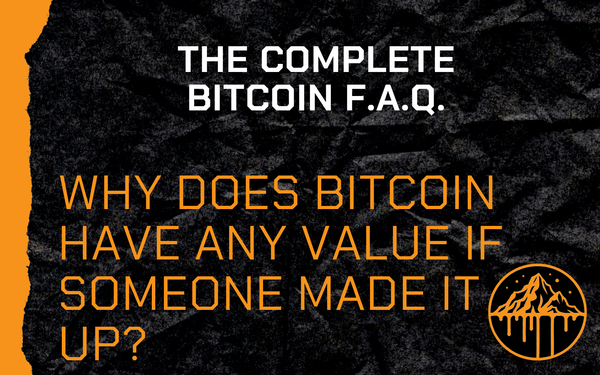The Curse of Knowledge: Smart Enough to Lose All Your Bitcoin
There’s a peculiar irony in Bitcoin security: the smarter you are, the more likely you are to lose your Bitcoin.
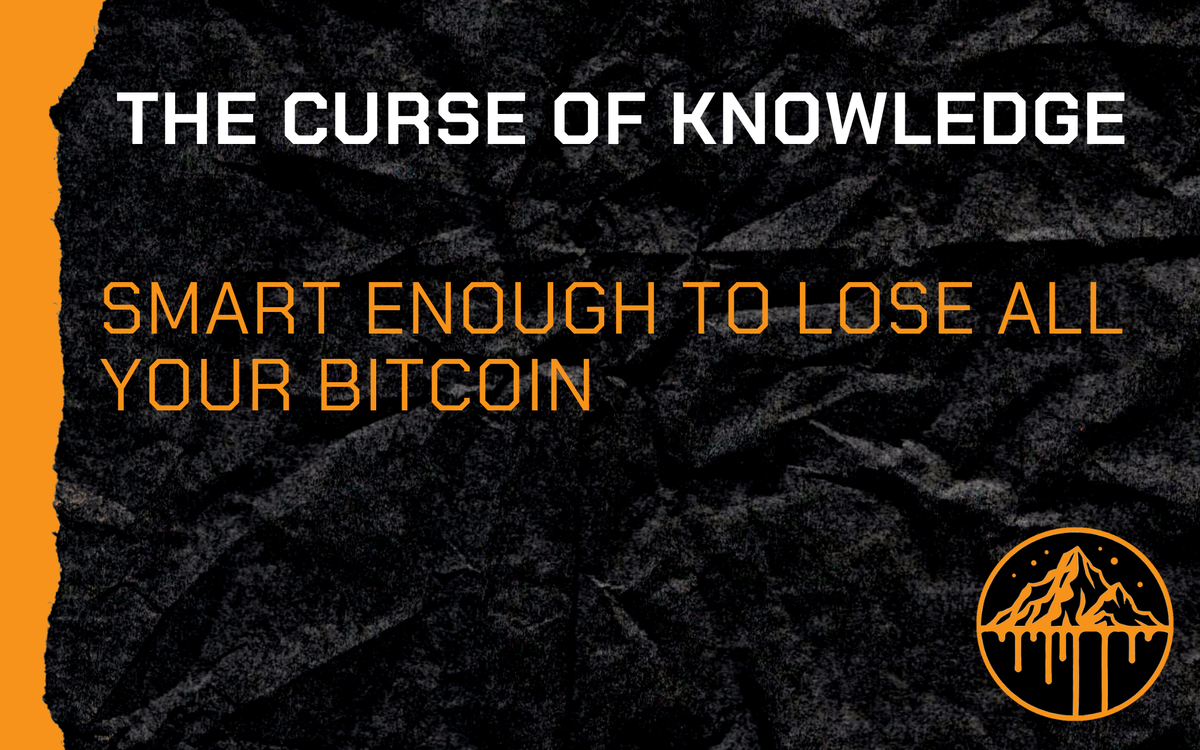
If intelligence prevented self-custody mistakes, Bitcoin Core developers would have a 100% success rate. They don’t.
There’s a peculiar irony in Bitcoin security: the smarter you are, the more likely you are to lose your Bitcoin.
This isn’t an insult. It’s a cognitive bias—the Curse of Knowledge. The more expertise you have, the harder it is to remember what it’s like to be a beginner. Worse, experts assume their intelligence makes them immune to mistakes. In reality, it blinds them to risks that a cautious beginner would never take.
And when it comes to Bitcoin, the consequences aren’t just embarrassing. They’re irreversible.
What Is the Curse of Knowledge?
The Curse of Knowledge is the idea that once we understand something deeply, we struggle to see how others don’t get it—or how we once didn’t get it ourselves. I’ve been a victim of this curse when it comes to marriage, money, or making hoagies (that’s “subs” for those of you who aren’t Yinzers).
This level of overconfidence leads to two major mistakes:
- Assuming something is obvious (when it’s complicated).
- Overcomplicating things unnecessarily (because simplicity feels “too basic” for experts).
In Bitcoin, both of these mistakes can be catastrophic.
How Smart People Lose Their Bitcoin
NVK, the founder of Coinkite, has seen it all when it comes to Bitcoin security mistakes. And during a recent podcast interview, he identified a dangerous pattern: the smartest people often make the dumbest security decisions.
Here’s how it plays out:
1. Rolling Their Own Crypto
Highly intelligent individuals—especially engineers, mathematicians, and cryptographers—often believe they can create a better security system than what already exists.
- They develop custom encryption schemes that are impossible to recover after their death.
- They create treasure hunt-style backups that even Indiana Jones couldn’t solve.
- They refuse to use hardware wallets because they think they can “design something better.”
Reality Check: Bitcoin security is already a difficult problem. If a Bitcoin Core developer like Luke Dashjr can lose 200 BTC due to a flaw in his setup, what makes you think you can outsmart the entire field?
2. Trusting Themselves Too Much
Smart people trust their own knowledge more than the systems designed by professionals. They assume, “I understand security better than the average person, so I can handle this myself.”
This is the exact opposite of adversarial thinking. A good security mindset assumes:
- I will make mistakes.
- I will forget things.
- I need a system that accounts for my human flaws.
3. Overcomplicating Self-Custody
In an attempt to be “extra secure,” smart Bitcoiners make their self-custody so complex that even they can’t use it properly.
- Air-gapped laptops with obscure operating systems that require constant updates.
- Multi-sig setups so convoluted that recovery is impossible.
- Secret storage methods so “clever” that their heirs will never find them.
It’s a common theme: intelligence breeds confidence, confidence breeds blind spots, and blind spots get Bitcoin lost forever.
I experienced this first-hand when showing my daughter how to access our Bitcoin—I had to revise my instructions MANY times during and after the demonstration.
Why Simple Is More Secure
Bitcoin security is about trade-offs, not just intelligence. The safest setup is the one you can use—and recover from if something goes wrong.
Here’s why battle-tested solutions beat DIY security every time:
- Hardware wallets have been attacked by experts for years. Your homemade security system hasn’t.
- Coldcard and other hardware wallets have economies of scale. They get hardened by thousands of users.
- Most Bitcoin is lost due to user error—not hacking. The biggest threat isn’t someone stealing your coins. It’s you locking yourself out of them.
If you think “I don’t need a hardware wallet because I can build something better,” ask yourself:
Are you really smarter than the thousands of attackers who have already tested existing solutions?
Final Thought: Security Is About Survivability, Not IQ
The best security system isn’t the most complicated. It’s the one that can withstand human nature.
If your Bitcoin setup requires a PhD to recover, it’s already failed.
So if you’re tempted to overcomplicate things, take a step back. Assume you’ll forget details. Assume you’ll make mistakes. Assume you’ll die and someone else will need to access your Bitcoin. Because you will.
Then design a security system that accounts for all of that.
Because in the end, the real enemy isn’t hackers. It’s overconfidence.
Wealth melts. How much you got left?
Disclaimer: Melting Wealth is not financial advice. It’s a wake-up call. Think for yourself, question the system, and take responsibility for your decisions. Your money, your risk, your move.


